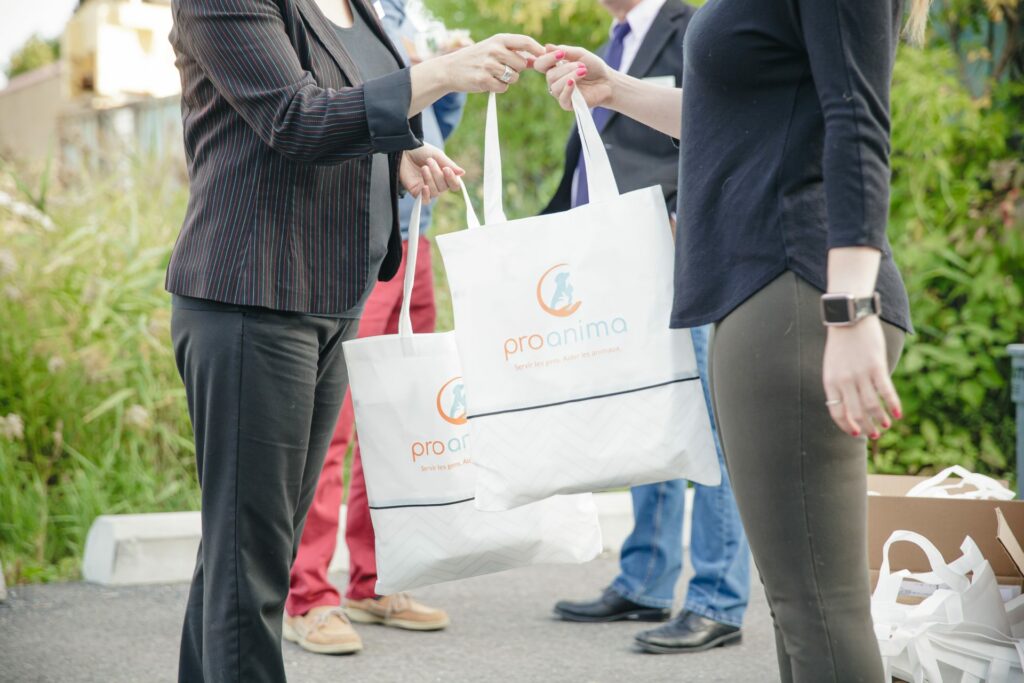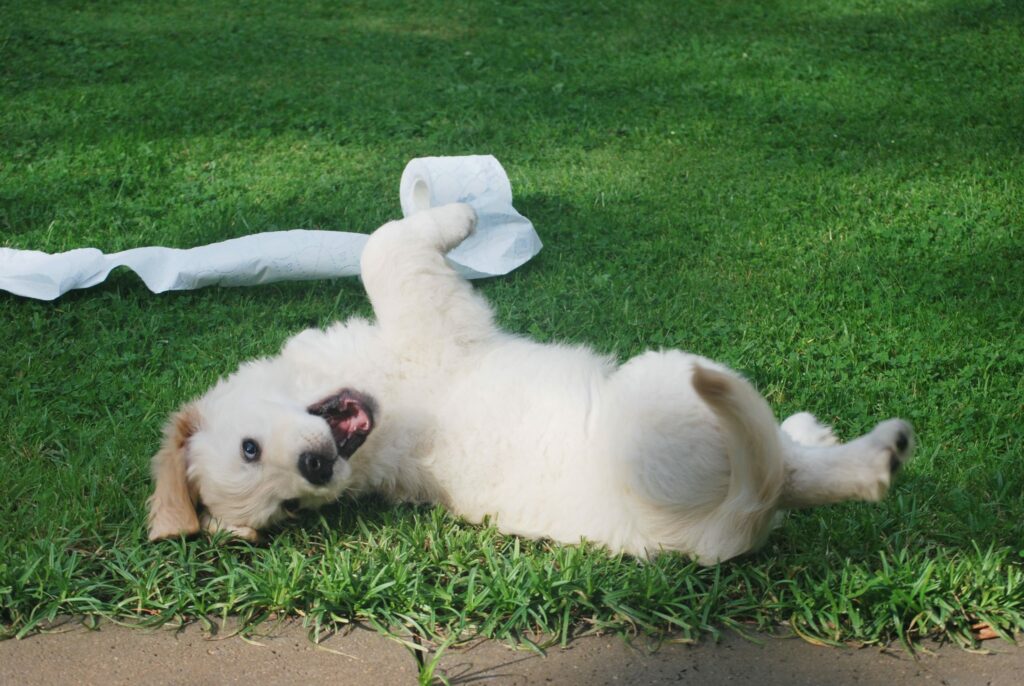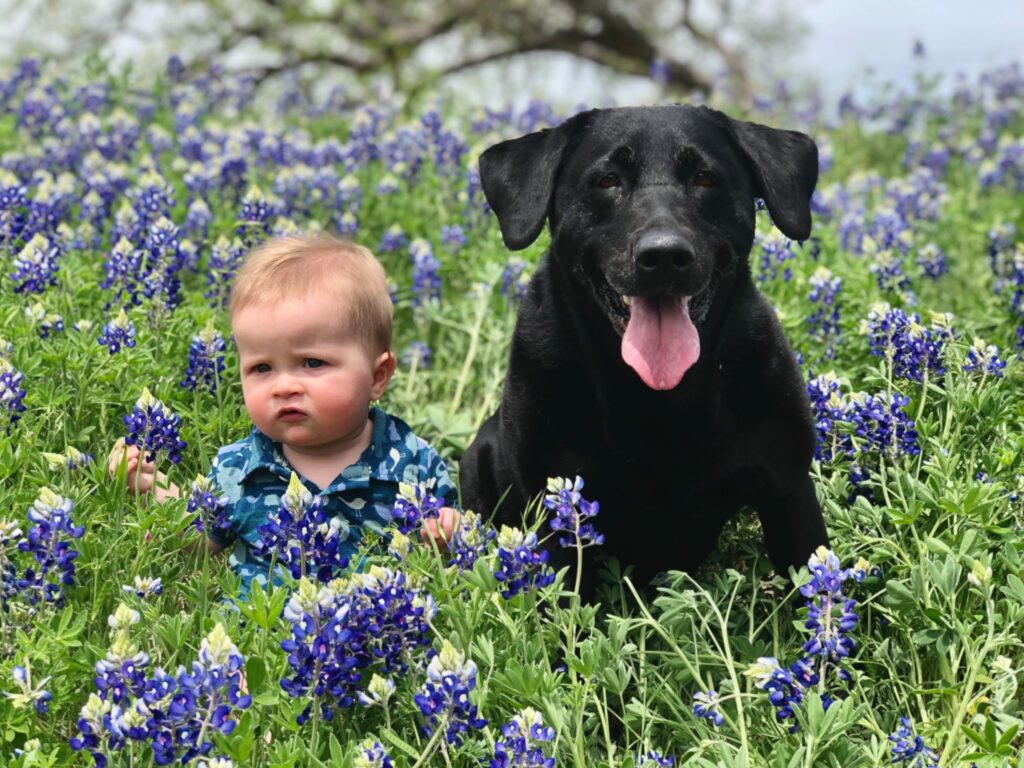Puppy socialization: even before birth!
By Patricia Durocher • 15 June 2022
When you adopt a puppy, you already know that there will be a lot of socializing to do in the months following adoption. Exposure to different stimuli, desensitization, puppy-to-puppy socialization, etc. What you may not know is that the socialization process begins long before your mate is born, and that the people responsible for mating will play a vital and influential role in the future of your relationship.
It’s wrong to think that socialization takes place between 8 and 16 weeks, and that you alone are responsible for its success or failure. Admittedly, this period is very important and you will have to expose your new companion to a number of situations during this time. the genetic factor, the mother’s education and the role of the person who will raise the litter are predominant elements in the puppy’s psychological balance and social development.

The genetic factor
To optimize adaptability, receptiveness and the desire to interact with humans, you need a mother who demonstrates these characteristics, as she will pass them on to her offspring. For example, a shy, reluctant bitch will teach her puppies (by imitation) to be wary. Another quite different example, but one that relates to the genetic factor: two sires with a history of shyness could greatly increase the chances of producing puppies with a shy, nervous temperament.
So, to sum up, choosing parents with stable, healthy, social behaviors will optimize the chances of producing offspring with greater receptiveness to socialization.
A mother’s education of her puppies
The way the mother raises and educates her puppies will also influence their behavior and the way they handle stress and adapt to new situations. So it’s vital that weaning takes place naturally, and that the person in charge of the litter doesn’t impose too early or too drastic a break between the puppies and their mother. How do you know when it’s time to start weaning? It’s time when ALL these facts are observable:
- Puppies are at least 7 weeks old and in good health
- Puppies are able to eat dry kibble, feed and drink independently.
- Mother shows signs of impatience during or at the end of breastfeeding sessions
- The mother feels the need to have more and more frequent periods apart.
 photo credit Jametlene Reskp
photo credit Jametlene Reskp
Weaning should be approached gradually, over a period of 1 to 3 weeks, and periods of cohabitation between mother and offspring should continue (for educational purposes) until the latter leave for their new family (at least 8 weeks old). It would also make no sense to radically remove a complete litter from the mother, for the sake of her psychological balance. It is therefore indisputable to say that the person wishing to breed dogs must have a thorough knowledge of canine behavior and will play a predominant role in the future of the puppies brought into the world by selecting and providing
- Breeders that are healthy in body and mind, social with humans and free of behavioral problems
- An environment conducive to mental development and stimulating the blossoming of puppies and mothers, thus limiting stress
- Daily interaction, handling and desensitization of puppies by humans
- Natural weaning after 7 weeks, limiting stress and predisposition to anxiety and/or other behavioral disorders
- Basic puppy socialization training for adopters.
Your role in socializing your dog
That’s all well and good, but what about your duties in terms of socialization once you’ve adopted? To optimize your new friend’s socialization, between the ages of 2.5 months and 6 months :
- Gradually expose him to new situations so that he learns to manage stress and strengthen the relationship of trust between you and him.
- Exposure and regular interaction with men, women and children
- Put him in frequent contact with other puppies and healthy adult dogs (well-trained and under the control of their handler) so that he learns language and maintains his social skills with his peers.
- Desensitize him positively to handling and restraint, which he will have to do throughout his life (veterinary examinations, grooming, interactions with children, etc.).
- Teach him good manners and clear limits so that the notion of respect (previously taught by the puppies’ mother) is perpetuated in his new environment… which will reassure him and establish an unshakeable bond of trust between you.
Now you have the recipe for optimal socialization. Remember that socialization is a lesson that can also be taught to an older dog or one that has suffered from a lack of it when younger. Establish a bond of trust and he’ll explore the world with you!





Leave a Reply